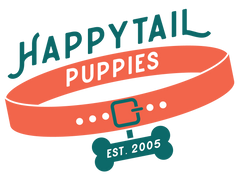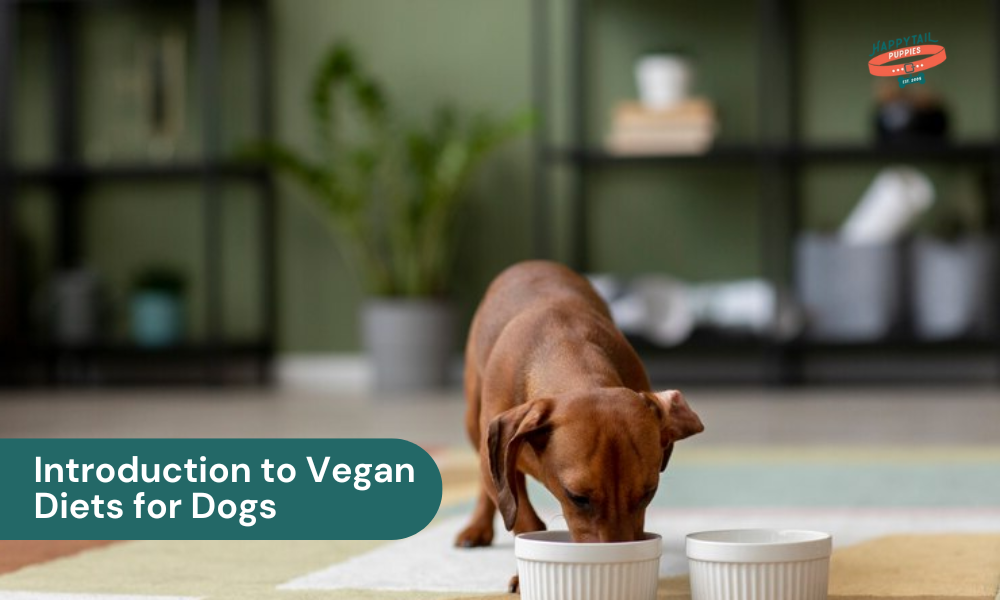Introduction to Vegan Diets for Dogs
Vegan diets for dogs are gaining popularity due to their numerous health benefits, including improved digestion, a shinier coat, and weight management. This guide explores how transitioning your dog to a plant-based diet can enhance their overall well-being, offering insights into the best vegan food options and how to make the switch.
Although the option of feeding your dogs a vegan diet might appear unconventional at first glance, it has attained huge demand recently. People often choose to transition to plant-based diets, and pet owners are often on the verge of exploring vegan diets for their pups. Since dogs are often regarded as omnivore species, consumption of both plant and animal-based foods has elevated the growing transitions for dog owners into choosing vegan diets for dogs.
What is a Vegan Diet for Dogs?
Vegan food or plant-based food for dogs is an important food that is free from any sources of animal-based ingredients. It is the generic consumption of the blend of elements from legumes, important vegetables, and proteins derived from soy, lentils, and peas. The primary perks of offering your dogs vegan-based diets can help in fulfilling the core nutrients required for the maintenance of the optimal health of your dogs.
Statistical reports conducted through the Data Bridge Market Research studies indicated that the overall market size of vegan food for dogs reached USD 12.27 billion at the end of the fiscal year 2021 and is predicted to reach an estimated USD 31.48 billion by 2029. It is projected to grow at a rate of 12.5% between 2022 and 2029. Numerous global pet owners are opting for this path to promote the overall health of dogs.
Benefits of a Vegan Diet for Dogs
Vegan diets for dogs offer different health-related perks, specifically whenever they get formulated, distinctively meeting the core nutritional requirements. For small dog breeds such as Bichon Frise or the Pomeranians, a plant-based diet can help enhance different attributes of their health. Organic dog food has several health-related perks crafted for the canines, including fewer skin allergies and diseases, fewer digestive disorders, the best general health, and the premium quality of life.
Improved Digestive Health
Dogs suffering from gastrointestinal issues often experience notable relief whenever they transition to a vegan diet. Animal-based proteins and fats are often complex for some dogs to digest, leading to gas, bloating, or diarrhea. Both wet and dry dog foods are rich in plant-based elements and have less fat and enriched fiber, which can pace up overall digestion in dogs, mainly small dog breeds prone to stomach issues.
Plant-based foods such as peas, sweet potatoes, and brown rice are easy to digest, promote and support healthy bowel movements, and protect against diarrhea and constipation. Fiber is also essential for regulating the gut microbiome, which in turn contributes to efficient digestive functions.

Healthier Skin and Coat
A vegan diet for dogs contributes to their shinier coats and healthier skin. Small dog breeds like the Teacup Havanese are considered for their shinier coats, which might notice less shedding and skin irritations. Chia seeds, flaxseeds, and coconut oil are the rich plant-based components forming the enriched sources of the important fat contents that help keep your pup's skin nourished to help retain the shine and health of their coats.
Furthermore, the antioxidants derived from plants help support the optimal condition of their skin, reducing any sort of inflammation and also removing problems related to eczema, hot spots, and dryness. Small dog breeds with delicate skin can be effectively helped through a vegan diet that can reduce the scope of worsening these conditions.
Weight Management and Obesity Prevention
Obesity is one of the notable concerns for the different small dog breeds like the Bichon Frise, who are frequently prone to gaining weight due to the less energy expenditure or the compact sizes. The vegan diets for dogs often have less caloric and fat content as compared to conventional meat-based dog food, making them the optimal choice for dogs who need proper weight management.
The rich fiber content of plant-based foods such as peas, lentils, and pumpkin can help dogs feel fuller for a long time, which often reduces their chances of overeating and helps with effective weight management. Vegan dog food is rich in core nutrients to help your pup improve its mineral and vitamin content, and it does not contain fat.
Reduced Risk of Allergies and Sensitivities
The greater amount of food allergies are sensitivities are ever-growing in different dog breeds and specifically among the toy and miniature breeds. Grains, dairy, and meat are common sources of allergens causing negative reactions, including gastrointestinal upset, itching, and infections in the ears. The vegan diet for dogs removes such allergens, offering better relief for dogs dealing with sensitivities.
For small dog breeds like Pomeranians, switching to a vegan diet often reduces the generic symptoms linked with food allergies, such as ear infections or skin rashes. Several plant-based dog foods are formulated without dairy, gluten, and other possible allergens, making them the ideal alternative for sensitive dogs.
Ethical and Environmental Benefits
Pet owners adopting vegan diets for dogs do so for ethical reasons, targeting reducing the impact of the pets on the animal and environmental agriculture. Since there are different ecological complexities often caused by factory farming, including greenhouse gas emissions and deforestation a vegan diet helps to reduce the overall ecological footprint.
A vegan diet for dogs contributes to a highly sustainable space. Small dog breeds like the Teacup Havanese or Bichon Frises have less requirement for energy, which is perfect for vegan meals. While the pet owners select the vegan options, they would match the food choices of dogs with their better commitment to animal welfare and sustainability.
Better Heart Health
A vegan diet can help boost the cardiovascular health of your furry companion. Vegan diets for dogs generally contain less cholesterol or saturated fat, which contributes to heart disease. For small dog breeds prone to a few specific heart conditions, a diet rich in vegan components aids in retaining optimal heart health.
A few specific plant-based foods, including kale, spinach, and blueberries, are loaded with antioxidants, which promote heart health while reducing inflammation. Small dog breeds like Pomeranians have elevated risks of heart disease, often due to their size, but the vegan diet offers protective perks for their heart systems.
Improved Kidney Health
Kidney issues are a major concern for several dogs, especially when they start to age. Animal-based proteins, due to their higher nitrogen content, can stress the kidneys, leading to waste generation filtered through the kidneys. A vegan diet is an application with the consequence of a reduced amount of animal proteins. Hence, it reduces the load on the kidney and plays a positive role in the physiological activity of the kidney.
Small dog breeds like Bichon Frises are susceptible to renal disease in old age. A benefit of their use is that they allow for a plant-based diet, which rarely strains the kidneys or filters. Plant-based foods, such as sweet potatoes, lentils, and peas, can improve dogs' digestion.

Stronger Immune System
Vegan diets can help dogs boost their immune systems by offering a treasure trove of important minerals and vitamins from plant-based foods. Small dog breeds are at a greater risk of diseases and infections, so boosting their immune functionality is important. Vegan dog foods are rich in antioxidants that aid in fighting the free radicals damaging the cells and weakening the immune system.
Fruits generally contain a high content of Vitamin C. Green leafy veggies like spinach are rich sources of Vitamin E, which helps to boost the dog’s overall immune system. Good immune function can help prevent any sort of infection in dogs, minimize inflammation in their bodies, and maintain overall health.
Nutritional Considerations for Vegan Diets
Although vegan diets for dogs offer many perks, it is essential to recognize that not every plant-based food contains the important nutrients that keep dogs healthy. Small dog breeds like Teacup Havanese or Pomeranians should have their diets appropriately managed, specifically in terms of vitamins, proteins, and minerals.
Protein Sources
Dogs often need premium-grade proteins that benefit muscle and energy development. Common vegan protein sources include chickpeas, lentils, peas, soy, and quinoa. Due to their rapid metabolism, small dog breeds need slightly higher protein intakes than larger dogs. Therefore, it is essential to measure protein levels and adjust their overall diet effectively.
Vitamin B12
Vitamin B12 is often found naturally in animal-based products and is the key nutrient often included in the diet of dogs. Pet owners should ensure that vegan food for dogs comprises fortified sources of B12 as a form of deficiency leading to severe health-related issues such as neurological issues or anemia.
Omega Fatty Acids
Omega 3 or Omega 6 fatty acids are rich for healthier coat, skin, and brain functionality. The fatty acid is generally derived from fish oils with plant-based sources, including chia seeds, flaxseeds, and algae, offering the important fats. Small dog breeds like the Maltese often benefit from the omega fatty acids that support their optimal health, preventing any skin-related irritations.
Calcium and Phosphorus
Both phosphorus and calcium are key promoters of bone health. Vegan dog foods are enriched with minerals, ensuring that small dog breeds get proper support for stronger teeth and bones.
Transitioning Your Dog to a Vegan Diet
Making a transition to a vegan diet for dogs involves careful planning and eventual adjustments to ensure a seamless transition. The process should be streamlined to meet the distinctive dietary requirements and core sensitivities of small dog breeds like the Havanese or Pomeranians. Here are a couple of detailed steps and considerations that will help you bring about a dietary transition for your dog.
Evaluate Your Dog’s Current Health
Suppose you are planning changes to your diet; in that case, it is essential to analyze the current diet and ensure that the food meets the dog's overall nutritional needs. A vet visitation is key to ensuring that the dogs are forming the best help with the smallies. Small dog breeds like the Tehavep Havanese have different health-related issues that should be factored in while choosing the right diet for these furry companions.
Choose a High-Quality Vegan Dog Food
Choosing nutritionally balanced and prominent vegan dog foods is important. Ensure the brands meet the standards set by the Association of American Feed Control Officials (AAFCO) ensures that the food is rich in essential nutrients. Small dog breeds like the Bichon Frise might benefit from the formulas specifically designed to meet their energy and sizes.
Introduce New Foods Gradually
Sudden changes to a dog's diet often cause digestive distress, especially in small breeds like French Bulldogs with sensitive stomachs. It is important to initiate the transition by blending a smaller amount of vegan food with the regular diet and gradually increasing the portion sizes for 7 to 10 days. This gradual transition helps your dogs adjust to the latest flavors and ingredients.
Monitor Your Dog’s Response
You need to aim towards the dog's energy levels, behavior, and the quality of stool to help with this change. For breeds like the Pomeranians, changes to the energy levels, coat texture, or digestion of your dog would show the way they would adapt to this vegan diet. Adjusting the portion sizes or the ingredients is required while consulting with your vet if you find any hair-raising symptoms.
Incorporate Homemade Vegan Meals
Vegan meals made at home are the ideal way to supplement dogs' diets with whole, fresh foods. Quinoa, lentils, carrots, and sweet potatoes offer the core nutrients. Try ensuring that the recipes add in balanced proportions, mainly for small dog breeds that need accurate portioning.
Use Vegan Treats for Positive Reinforcement
Also, ensure that your dog is encouraged to accept the new diet, which is seamless with vegan treats. Small dog breeds often reap the perks and use plant-based treats during training or snacks to help them associate the vegan diet with positive experiences. The options, such as vegan dog biscuits or dehydrated sweet potato slices, are nutritious and tasty.
Conclusion
Whenever you are more concerned about the health of your dog and the safety behind the food you are feeding them or wish to bring about better weight regulations while introducing plant-based vegan foods to the diet. It will offer you better peace of mind with the vegan diet that you will know whatever your dog is eating and especially its source. You can get this done eventually as you can feed them some meat-based foods while helping them to make the transition to the vegan diet or retain the flexitarian blend whichever suits your dog the best.


